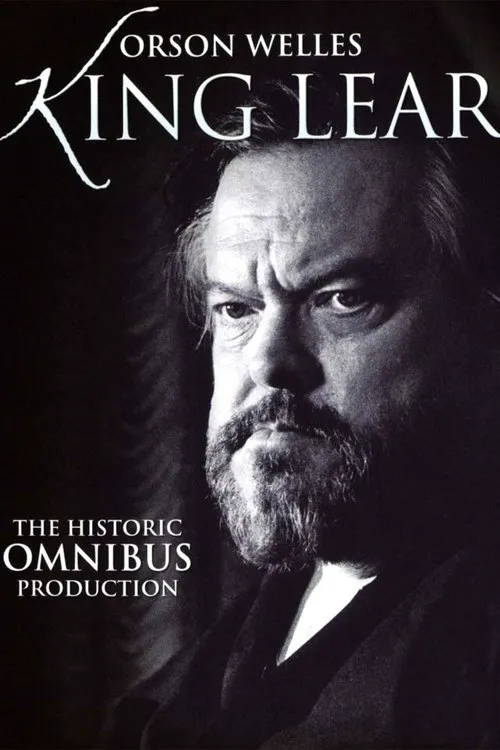King Lear

Plot
In this rendition of William Shakespeare's timeless tragic masterpiece, King Lear, the aging monarch faces a crisis of power, family dynamics, and his own pride. The story, as depicted in the abridged television production, revolves around Lear's decision to relinquish his throne in favor of his three daughters, Goneril, Regan, and Cordelia, in a grand gesture to ensure his legacy's longevity. The production begins with King Lear, a once-esteemed and renowned ruler, who seeks to distribute his kingdom among his daughters as a means of securing their loyalty and affection. Lear's intentions are seemingly altruistic, yet the undercurrents of his actions reveal a deeper desire to escape the weight of power and responsibility. This is evident when Lear invites each of his daughters to express their love and filial devotion to him. Lear's oldest daughters, Goneril and Regan, are the first to speak, showering their father with lavish praise and exaggerated declarations of love. However, Lear's youngest daughter, Cordelia, whose words are often considered some of the most poignant in all of literature, hesitates and chooses her words carefully. Cordelia, who represents wisdom, honesty, and genuine love, refuses to overstate her love for Lear, citing that speaking the truth will prove more valuable than insincere flattery. Lear, however, is misinformed by the flattery of his older daughters and enraged by Cordelia's candidness. Displeased by Cordelia's reserve, Lear banishes her from the kingdom and divides his realm equally between Goneril and Regan. This decision sets off a chain of catastrophic events that ultimately lead to Lear's downfall. As Lear's daughters begin to exercise their newfound power, their duplicity becomes evident, and Lear realizes his grave mistake in entrusting them with the kingdom. Lear, a proud and stubborn man, initially refuses to acknowledge his daughters' deception. His inability to see the truth stems from his deep-seated desire to believe in their love and his own grandeur. However, as the plot thickens and his kingdom teeters on the brink of chaos, Lear begins to confront the harsh realities of his daughters' manipulation and his own hubris. Meanwhile, Cordelia, who has been exiled, forms an alliance with the French King to reclaim her rightful throne. Her love and devotion to her father prove unwavering, despite the difficulties and hardships she faces. Throughout the production, Lear's mental state deteriorates, and he becomes increasingly isolated and disillusioned. His actions become erratic, and he suffers a tragic collapse of his psyche. The Lear of the play's beginning and the Lear of the tragic finale are two vastly different characters. His downfall serves as a cautionary tale about the dangers of unchecked ambition, pride, and the devastating consequences of misdirected power. As the story unfolds, Lear's once-great kingdom crumbles, and his relationships with his daughters deteriorate further. In a poignant and heart-wrenching climax, Lear confronts the truth about his daughters' treachery, and in a last-ditch effort to reclaim his throne and his family's affections, Lear launches a futile and disastrous rebellion. Regrettably, the production ends in a heart-wrenching tragic conclusion, with Lear left alone, broken, and defeated. Cordelia, who has managed to retake the throne with the help of her French allies, is tragically executed on the orders of her treacherous sisters. Lear, overcome with grief and remorse for his treatment of his daughters, is eventually reunited with Cordelia in death. In this abridged television production, Shakespeare's classic tragedy, King Lear, serves as a powerful commentary on the human condition, power, family dynamics, and the devastating consequences of unchecked ambition and pride. Through the character of Lear, Shakespeare masterfully weaves a tale of epic proportions, one that has captivated audiences for centuries and will continue to resonate with viewers for generations to come.
Reviews
Recommendations


